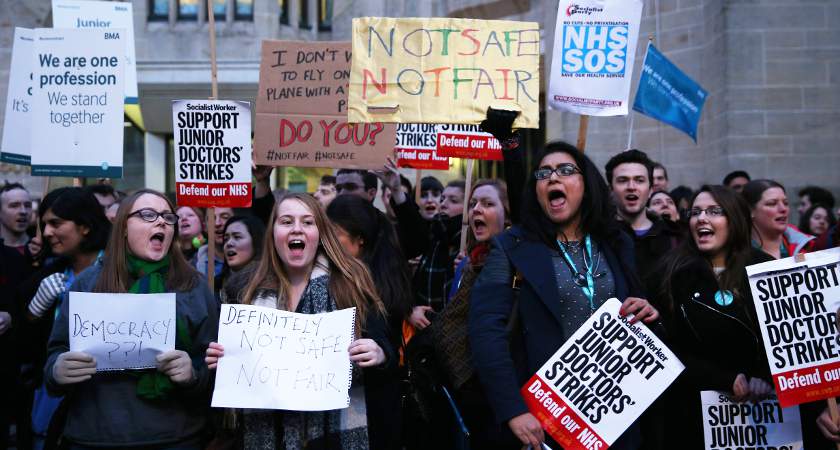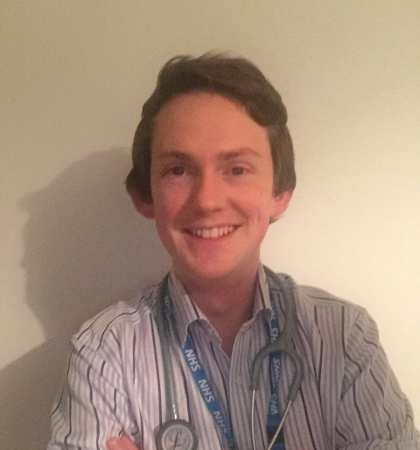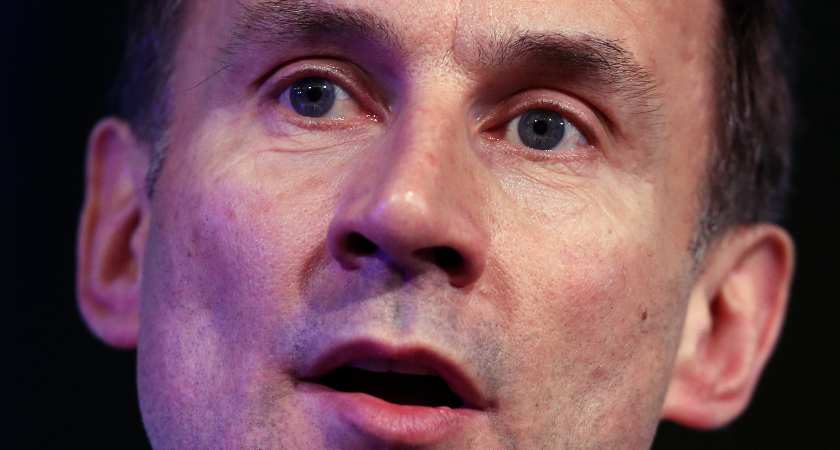LAST November 98 per cent of junior doctors voted in favour of an all-out strike against proposed contract changes by the British Government.
As today’s 48-hour strike begins, it is with an air of disappointment and apprehension that I reflect on what this means for young Irish doctors working in England.
From a personal point of view, as a 28-year-old Irish doctor in England it has been a really surprising and sometimes depressing episode. Four and a half years ago as I walked away from the graduation ceremony at Queen's University Belfast I never would have envisaged that life as a doctor would have entailed industrial action this early on.
Doctors have not been on strike since 1975. My expectations were of long hours, few breaks, weekend, night and Christmas shifts.
My hopes were of gaining practical skills, finding a specialty, saving people's lives and being encouraged by a sense of accomplishment.
Moving to England was a change of scenery, an escape from the politics of the North of Ireland and the prospect of more opportunities. As the reality of working life kicks in most people have that sense of acknowledgement that your goals aren't always as achievable as you would have hoped.
Our generation joined the NHS when it hit the iceberg.
Those with experience and some foresight and at the right age managed to jump ship before the impact, whether that meant retirement or immigration. For those that had just joined, it was a case of riding out the storm.
Like many other public sector workers we were hit with increases in pension contributions and reduced actual pension payouts (very quiet industrial action in 2012) adding to the loss of free hospital accommodation and a general stagnation of pay.
Insults that reflected the times we lived in.
The years at medical school had brazened you to grit those teeth and urged you to keep playing that violin on the Titanic, waiting until your fingers fell off or the ship sank.
As of October 2015, there were 275,000 doctors on the General Medical Council's register, with 53,000 of these classified as junior doctors.
A junior doctor is the umbrella term for all non-consultant doctors who are still ‘in training’.
They are often the first people to meet a patient on their journey regardless of whether that is through an elective or an emergency pathway.
They make up the bulk of doctors that are omnipresent at weekends, during evenings, nights and bank holidays. Some, can have 15 years of clinical experience behind them.
 Junior Doctors protest outside the Department of Health at the Government's intention to impose new contracts on February
Junior Doctors protest outside the Department of Health at the Government's intention to impose new contracts on FebruaryOutside of the British training program, Irish-trained medics make up the fifth largest proportion (1.5 per cent) of doctors in Britain after India, Pakistan, South Africa and Nigeria.
But in terms of ethnicity 2.1 per cent identify as White Irish, which probably accounts for doctors from both the North and the Republic who trained in Britain.
The Government and the British Medical Association (BMA), the trade union and professional association for doctors have been discussing the junior doctor contract since 2012 without any significant progress.
The Government are advised by the Doctors and Dentists Review Body (DDRB) who have recommended 23 changes to the contract. The Government, represented by the Secretary of State for Health, Jeremy Hunt have labelled 22 of these points as non-negotiable.
The BMA has consistently advocated its eagerness to return to the table when more than one of these recommendations are deemed negotiable. The last six months have witnessed an unprecedented out-cry from doctors of all backgrounds involving protests, TV interviews and the swamping of social media with their plight.
Continued below...
Junior Doctor contracts: What the British Medical Association says…
- In 2012 the British Government asked the BMA to look into negotiating a new contract for junior doctors
- After two years of negotiations, the BMA withdrew as it felt the contract would not provide sufficient safeguards for junior doctors and their patients
- The DDRB, an independent body, undertook a review and provided recommendations for a new contract
- The government asked the BMA to re-enter negotiations but no agreement was reached. The BMA labelled the proposals as unsafe and unfair
- The Government said they would impose a new contract from August
- Last November more than 37,000 junior doctors in England went to the ballot with 98 per cent voting for full strike action
- Direct contract negotiations between the BMA, NHS Employers and the Department of Health ended on January 4 without resolution
- As a result, junior doctors agreed to take industrial action
- Pay proposals, working patterns of doctors in training as well as support services and training across a seven-day week are among the contract issues in dispute
Continued from above...
There has been a very public war of words between the BMA Junior Doctor Chair, Johann Malawana and Jeremy Hunt. Jeremy Hunt has made it no secret that he feels his imposition of the new contract on junior doctors is justified as he continues his quest to ‘turn’ the NHS into a seven-day service.
Many of his statements have echoed similar sentiments to those issued in July when he berated consultants for opting out of weekend work.
His stance towards the junior doctor campaign has focused on two specific statistics on patient safety, which have become polemic issues amongst doctors and the media, but in reality have probably contributed to today's overwhelming mandate.
In my opinion the demoralisation of the junior doctor workforce has been ignited by misinformation combined with a poor level of communication from Jeremy Hunt with the BMA and doctors.
It has been disheartening to see doctors dissected in the media and suggestions that junior doctors choose to work nights and Christmas and bank holidays and are able to dictate what 'overtime' they do.
It makes sense to me that many junior doctors have felt industrial action is the only way forward. I feel that junior doctors are a generation and group of professionals that have been unfairly targeted and subjected to callous spin at times.
This profession does a lot without ever complaining. This is not about a pay increase, we are not asking for that, we are asking for the recognition of the hours worked. Every junior will tell you about the hours they spend after the shift has ended to ensure every patient is sorted, hours that are never recognised.
The new contract will abuse this sense of vocation. Furthermore it will put junior doctors in a position where they cannot safely look after the public and their patients.
Much has been said about the thousands of doctors who may take this opportunity to move further afield and join colleagues in Australia, New Zealand and the US. They have every right to do so if they feel their opportunities and working will be better elsewhere. They do not owe it to anyone to stay, the onus is on the Government to encourage them to stay.
People have flocked to England to work in the NHS since its institution from other countries, Ireland being one if the first. The NHS in England relies upon its workforce from Ireland, Africa and Asia. Already the applications for medical schools have plummeted.
The last thing this country needs is an exodus of key part of its workforce to other parts of the world. With regards to a seven-day service in the NHS this can only happen with appropriate staffing and resources.
Forcing an already stretched workforce even more thinly on the ground will not work. Having more doctors on weekends and other times will not improve services if there are not simultaneous staffing increases of radiographers, nurses, pharmacists and porters.
Dr. Ryan McCloskey, originally from Derry, is a 28-year-old junior doctor based in Merseyside



